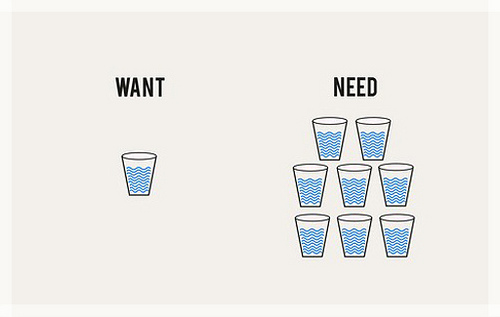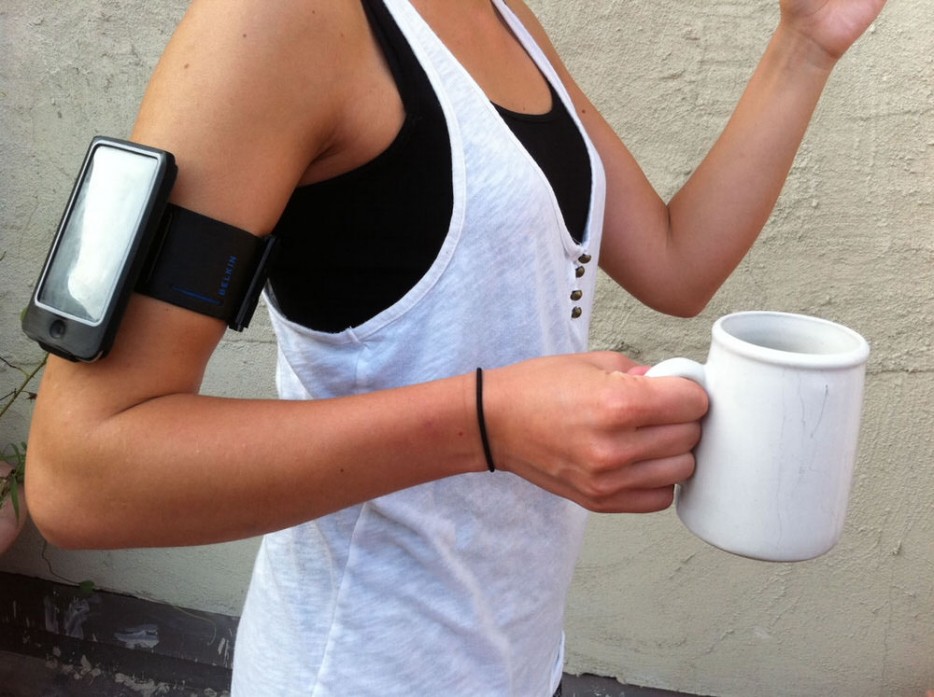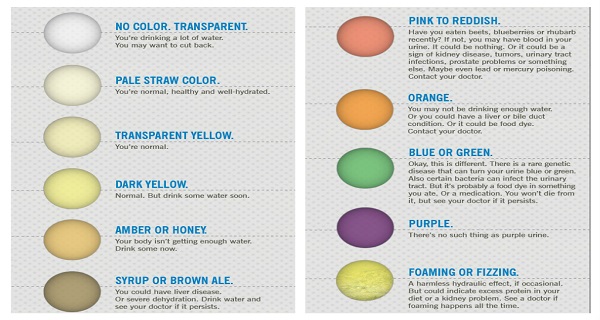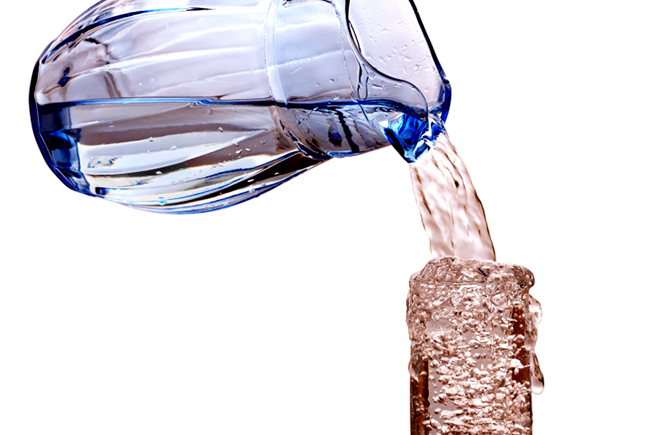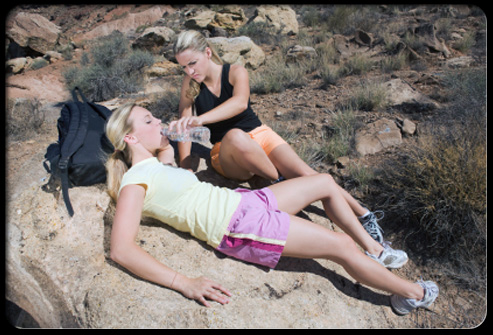If your body is an engine, water is the oil that it needs to function. It’s not only a fundamental component of our bodies, but proper hydration is one of the few primary needs we have as humans required to live a healthy life.
So why is there so much misinformation puddled around regarding the best practices of healthy hydration?
Let’s take a look at the most prevalent myths about hydration and dehydration, so you can walk away knowing the real truth behind the best practices of everyday water consumption. Whether you’re a marathon runner, a weightlifter or a couch potato, it’s crucial to maintain your water levels.
Myth #1 : You Need Eight 8 oz. Glasses of Water a Day
Truth is, you’re going to need around this amount. Every person has unique requirements, given their levels of exercise, fitness, dietary habits and environment.
If you live in Phoenix, the hot, dry air is going to sap you of your fluids rather quickly. If you don’t eat many vegetables (which contain water), you’ll want more water. On average, food supplies about 20% of our daily water needs.
Athletes especially have different hydration needs. The Institute of Medicine outlines that 91 ounces are recommended for women, 120 ounces recommended for men. That’s a little more than 11 glasses for female athletes, 15 for male athletes.
The Institute also relates that, “The vast majority of healthy people adequately meet their hydration needs by letting thirst be their guide.”
Remember that eight 8 oz. glasses is about two liters. So, if you drink two liter jugs from the grocery store or fill your Nalgene twice a day, you’ll be well taken care of meeting your body’s water needs.
Myth #2: Caffeine Dehydrates Your Body
Caffeine is valued for it’s performance enhancing benefits. But is it dehydrating you in the process?
Not quite.
Caffeine is a mild diuretic – meaning that it may cause the need to urinate – but that doesn’t mean you’re going to get dehydrated. Susan Yeargin, Ph.D., and assistant professor of athletic training at the University of South Carolina, shares the latest:
“Recent research shows that caffeine doses between 250 and 300 milligrams – about two cups of coffee – will minimally increase urine output for about three hours after consuming it.
But research also shows that exercising seem to negate those effects. If you run within one or two hours of drinking coffee, you don’t pee more.”
Myth #3: Clear Pee Means You’re Hydrated
Aiming to have clear urine is going overboard. Your goal should be a pale yellow, something akin to lemonade – then you know you’re hydrated. If your urine is clear, it means that you’re full and what’s going in is just going back out again without interacting with the body.
If you’re experiencing particularly smelly or dark urine – like apple juice – it’s time to hydrate.
Myth #4: You Can’t Drink Too Much Water
Drinking too much water can be deadly. Overdoses of agua can cause symptomatic hyponatremia, a condition in which the sodium levels in the blood become perilously low.
This isn’t a widespread problem, as the discomfort associated with drinking too much will dissuade most people. But a small portion of marathon runners develop symptomatic hyponatraemia. And within this small group, there are groups more prone to this issue. Those that do significant portions of training in cooler weather (and sweat more during hotter competition climates) can suffer, as well as those who finish a marathon in under four hours.
For the rest of us, listening to our thirst is our best guide.
Myth #5: Pure Water is the Best Form of Hydration
For your daily gym routine or an hour-long run outside, water is a great choice. But if you’re getting into longer training circuits or are working out in intense heat, you’re likely to sweat more. In this case, you’ll need to ingest some sodium as well.
Salt, the common form of sodium, is great for helping your body retain water. As water binds to sodium, your body is likely to urinate it.
You can mix a small amount of salt into a water bottle – about half a teaspoon will do. Be aware that salt tabs aren’t such a great option, as there’s no bodily way to ‘preload’ sodium to prevent sodium loss. You’ll just expel any excess you don’t use.
Electrolyte enhanced sport drinks are a good option. Gatorade was first developed in 1965 by University of Florida “Gators” physician Dr. John Cade to help increase the health and endurance of football players during the sweltering heat and humidity of the South.
That said, if you’re looking to get away from the sugar content in drinks such as Gatorade and Powerade, substitute or mix in coconut water or create your own homemade sports drink.
Myth #6: Thirst Isn’t Always Accurate
Thirst is the biologically developed, evolution-certified tool to ensure humans are meeting their hydration needs. Some say that you need to do more.
It’s true that people can grow accustomed to drinking less water. Nomadic tribes in the Sahara Desert, for example, have adapted this way, but are they functionally dehydrated? No.
If you’re concerned about walking around chronically dehydrated, use the urine color chart to check yourself periodically throughout the day. If your urine is an unwanted shade, simply drink more water to correct this.
You can also calculate your sweat rate. To do this, weigh yourself naked before and after an hour-long run. Record how many ounces of water you drink during the run so you can factor this in after your exercise.
Every pound you lose translates to about 16 ounces of fluid.
Doug Casa, Ph.D., and professor of kinesiology at the University of Connecticut offers a couple of pointers for athletes:
“Your goal isn’t to match your sweat rate, but you should try to get as close as is comfortably possible. For some runners, that may mean replacing two-thirds of the fluids they sweat during a run.”
And you shouldn’t attempt to drink more fluids than you’ve lost.
Myth #7: Drinking Water is a “Detox” Method
“There is no evidence that excess water makes your body more clean.”
This from Stanley Goldfarb, M.D., and professor at University of Pennsylvania’s Perelman School of Medicine.
He continues, “If anything, drinking too much water can slightly impair the ability of the kidneys to filter blood.” He also notes that the only people who should consume more water to help the kidneys are those with kidney stones.
Detoxification is a process that happens in the liver. So if you’re trying to detox, focus upon keeping your liver healthy with a clean diet and minimal alcohol.
Myth #8: Being Properly Hydrated Eliminates the Risk of Heat Stroke
Heat stroke is a life-threatening condition in which your body temperature rises above 104 degrees. Dehydration makes you more prone to heat stroke, as people with less water in their bodies are hotter (and less efficient at cooling with sweat).
A study published in the Journal of Athletic Training showed that for every one percent of body mass through sweating, the body’s temperature increases by half a degree.
This means hydration is hugely important for preventing heat stroke.
But there are other factors at play. Exercise intensity, fitness levels, body size and composition, age, as well as air temperature and humidity can all influence who is stricken with heat stroke.
Treating heat stroke involves rapidly cooling the body temperature.
How to Know if You’re Dehydrated During a Workout
Sometimes it’s hard to tell if we’re thirsty while training and if you’re going for long distances away from water, you’ll want to be aware of a few checks to make sure you know if you need to stop for a drink.
You Feel Fatigued
Lean muscle is around 75% water, so when you’re short on H2O, muscles are easily fatigued. Hydration helps prevent the decline of strength, power, aerobic capacity and anaerobic capacity. Cramping is also a muscular indication that you need to hydrate.
If you’re feeling too tired to finish your workout, rest and drink some water.
You Have a Dry Mouth
One of the earliest signs of dehydration is dry mouth. If your mouth starts to feel parched, make a move to the nearest water fountain or your water bottle. Drink extensively and have a break to give your body time to adjust. Hydration starts immediately, but can take minutes for changes to reach your system.
You Feel Dizzy
No matter how hard you want to push yourself, feeling dizzy is not a sign of endurance, it’s a sign you’re dehydrated. When dehydrated, there’s less plasma in your blood. “The heart must work harder to get the blood to the working muscles,“ says Dr. Doug Casa. Without sufficient water in the blood, the blood volume and blood pressure drop and the result is the feeling of dizziness.
The Last Sip
Staying hydrated is going to help you feel and perform better throughout your daily life. When we step up to our exercise routines, it becomes especially important to make sure we’re starting hydrated. And that we’re staying hydrated as well. By starting the day with a cold glass of water, it sets a precedent of proper hydration. To continue hydrating, bring a water bottle in your bag to work and to the gym. As always, listen to your body and be sure to check your urine color every once in awhile, just to be safe. I’ll drink to that!

